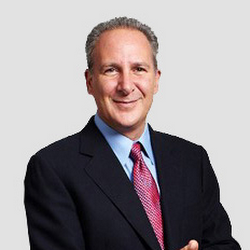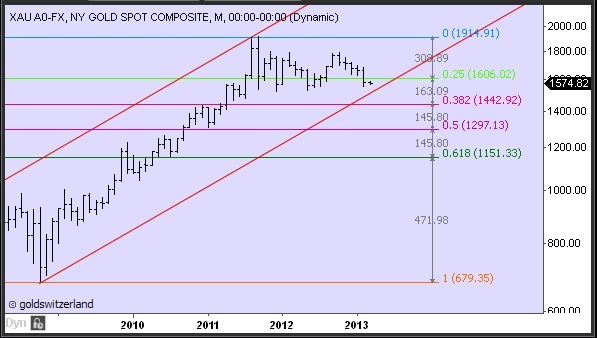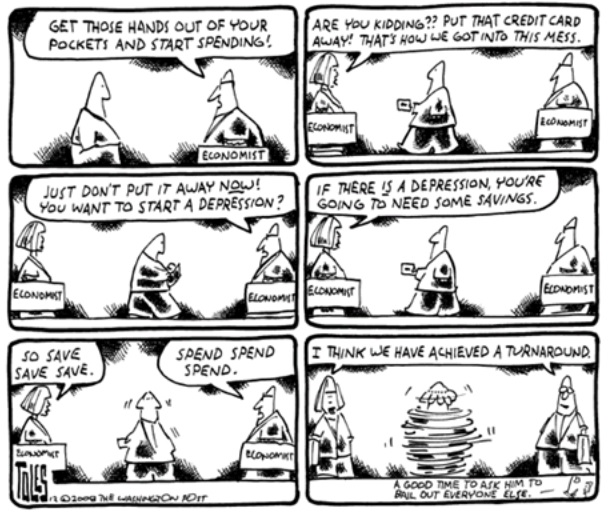Warnings have to be early to be effective
THE MATTERHORN INTERVIEW – March 2013 Special with Peter Schiff
“Warnings have to be early to be effective”
Peter Schiff, best-selling author and one of America’s most in-demand financial pundits, talks in this interview about Germany’s gold reserves, the “currency war” meme, his expectations for gold and silver, the U.S. as a “Lance Armstrong economy,” and the 100th anniversary of the U.S. Federal Reserve.
By Lars Schall
Peter Schiff, born 1963, is the President & Chief Global Strategist of Euro Pacific Capital, Euro Pacific Precious Metals, and Euro Pacific Bank for clients outside the United States. He began his investment career as a financial consultant with Shearson Lehman Brothers, after having earned a degree in finance and accounting from U.C. Berkeley in 1987. He joined Euro Pacific in 1996 and has served as its President since January 2000.
He is the author of five books, among them: “Crash Proof: How to Profit from the Coming Economic Collapse” (February 2007), and “The Real Crash: America’s Coming Bankruptcy”(May 2012). You can find Mr. Schiff’s regular comments in relation to gold at his blog: http://blog.europacmetals.com.
He is a highly recommended broker by many leading financial newsletters and investment advisory services as well as many major media outlets such as The Wall Street Journal, Barron’s, Forbes, The Financial Times, The New York Times, The Washington Post, etc. and appears regularly on CNBC, CNN and Bloomberg.
Lars Schall: Mr. Schiff, in April of last year we were talking about the German gold reserves held abroad. (1) In fact, I’ve asked the Deutsche Bundesbank afterwards for a comment on your thoughts related to it (as well as on the thoughts given to me by Nomi Prins and Jim Rickards). Back then the Bundesbank refused to comment. (2) But now in January of this year the Deutsche Bundesbank announced that it wants to repatriate some of its gold holdings at the NY Fed and all of its gold from the Banque de France. What are your thoughts on this?

Peter Schiff: I think that is the right move for the Germans. I would be worried about keeping so much of my gold offshore if I was Germany, considering that I believe that we are going to have a currency crisis. I think the world is ultimately going to remonetize gold. And I think the United States in particular could be in such dire financial conditions that it nationalizes all the gold within its borders which might include the German gold. So I think the Germans are right to be concerned, if I were them though I would be trying to get more of my gold back quicker. Apparently they only asked for about a third of the gold that they hold at the New York Fed and they are allowing the United States to take seven years to deliver it, so they may never see that gold.
L.S.: Do you consider it a bit strange that apparently it will take seven years to bring roughly 300 tons of gold from New York City to Frankfurt respectively five years to bring roughly 370 tons from Paris to Frankfurt?
P.S.: Well, do you have any idea if the Germans asked for the gold to be returned in that manner? Or did they want it right away and the United States basically said you cannot have it right away, this is how long it is going to take?
L.S.: I do not know how this deal was struck but…
P.S.: I mean, it would be interesting to get the details.
L.S.: Yes, sure, and I’ve asked the press office of the Federal Reserve of New York about it, and I was told that they cannot talk about this due to “contractual confidentiality requirements”. (3)
P.S.: Yes.
L.S.: Anyway. The Bundesbank will leave a huge amount of its gold in New York City and London to have in the event of a currency crisis “the ability to exchange gold for foreign currency […] within a short space of time.” Does this argument convince you? Isn’t gold a prime winner in the event of a currency crisis?
P.S.: Well, we know it is the winner because people are talking about the currency war. Well, if there is a currency war the winner is gold or the loser is gold depending on your perspective, but gold is going to gain a lot of value, because they cannot create gold the way they can create dollars or euros or yen. Governments can create currencies out of thin air in any denomination they want. There is no difference between a hundred dollars and one dollar, but there is a lot of difference between a hundred ounces of gold and one ounce – it takes a hundred times the effort to get a hundred ounces of gold. It doesn’t take a hundred times the effort to print a hundred dollar bill versus a one dollar bill or versus a trillion dollar bill, it does not really matter. And as people around the world begin to recognize and appreciate the fact that there is no store of value in a debased currency that Governments are now issuing. Central Banks are not there to fight inflation, but to make sure that there is inflation.
The big fear now is that prices are not rising fast enough so no Government is promising safety or store of value in its currency. Every Government is saying that if you hold our currency, purchasing power is going to go down, prices are going to go up and that is a good thing. Well, it is not a good thing for savers and as savers recognize that their savings, their purchasing power, will be looted if they are foolish enough to leave it in the debased currency. More and more people will be buying gold and so the price is just going to go higher and higher and higher. And a lot of the central banks are going to figure this out, particularly a lot of the emerging market central banks that are exporting a lot and earning a lot of dollars that have been warehousing their dollars in treasuries. They really need to start buying gold in a big way because they do not have enough.
L.S.: Wouldn’t it be good from a German perspective to have all of Germany’s gold on German soil?
P.S.: I would think so.
L.S.: I give you one example why I think it would be good to have it over here, and this is in order to strike deals with energy and natural resource exporters, of whom I think that they will be interested in the future to trade rather in gold than in fiat money, hard asset for hard asset. (3)
P.S.: Yes, that’s true, but also just for the stability of their currency of the euro. I mean, you want to have gold, because what if they have to back their currency by gold and make their currency convertible into gold to restore confidence, you have got to have the gold. You know, you cannot just have a claim. The United States might not be in a position to honour that claim.
L.S.: Do you consider this as a possible way much more in the future: gold against oil in trading?
P.S.: Well, there is certainly a relationship between gold and oil, and I think as major central banks are debasing their currencies you cannot expect oil exporters to continue to sell their oil at those terms and eventually they may demand payment in real money, so they might want to be paid in gold for their oil rather than just currency.
L.S.: Do you agree with economists like Professor Micheal Pettis from Beijing University that holding the world’s reserve currency is an “exorbitant burden” that the US could do without?
P.S.: Well, I think the US dollar should not be the reserve currency because of our macro-economic fundamentals. I think to the extent that you are going to have a reserve currency, the country issuing it has to be on very sound financial footing. I think it has to be the soundest economy in the world. It should be a creditor nation and an exporter. It should not be a country that it has to borrow lots of money, that has big trade deficits, huge budget deficits, that is printing all this money. There is no way that a country like that should be issuing a reserve currency. When the dollar became the reserve currency that was not the case. The United States was the opposite of what it is today and so it made sense in the 1950’s, it does not make sense in the 2000s, you know, now.
L.S.: Yes well, every single currency is devaluing against gold. Do you think that this is also a part of the so called currency war?
P.S.: Well, it is not a part of it, it is a consequence of it.
L.S.: Yes.
P.S.: Although gold has been pulling back recently, because I think a lot of investors are somehow convinced that now that the global economies are recovering – although I would question that thesis – they think well, they do not need to own gold now as a safe haven, but they do not understand that the reasons that the economies are “recovering” is simply because central banks are inflating and basing their recoveries on monetary debasement. And so this is very positive for gold – it is not a negative.
L.S.: Yes. Will the “currency war” lead in the next phase to trade war?
P.S.: I do not know. I think the currency wars will lead to inflation and eventually rising interest rates and that is going to be very problematic.
L.S.: Yes. What is the best way to trade the sovereign bond crisis that you foresee?
P.S.: Well, I think bond prices are going to fall. I think US Government bonds, Japanese Government bonds, UK Government bonds, European… – I mean, I think all these bonds are going to fall, and I think those are probably some of the bonds that you would want insured if you are looking to play that. Although you never know in the short run what could happen, but long term those are some really over-valued bond markets.
L.S.: Yes. Meanwhile China is getting steadily out of U.S. dollars/U.S. treasury bills by buying among other things, big amounts of gold. How do you view Beijing’s ambition to promote the globalization of the yuan as a competitor of the U.S. dollar and the euro?
P.S.: I think that they should do that and I think that their efforts would be helped if they were not buying or storing and sell more dollars, they were not trying to keep their currency pegged to the dollar, which they are. I mean, they are not letting their currency rise against the dollar nearly fast enough, and I think a stronger yuan and if they had it more freely trading, if it was easier to buy and sell and get money out of China, I think it would help their cause a lot more and also help their citizens achieve a higher standard of living.
L.S.: And what do you think about the fact that Russia is buying gold substantially?
P.S.: Well, they are, they are buying it and more central banks are going to be buying it. At some point the price is going to just sky rocket, so central banks need to buy as much as they can before that happens. They are going to end up paying higher prices, eventually they are going to have to, but the smart banks are buying now.
L.S.: Yes. What is your outlook for the commodity sector in general?
P.S.: In general I am very bullish on commodities, not only because of all the money printing which by just de facto makes commodities more expensive in terms of depreciating currencies, but I think as the world evolves, as the emerging markets begin to consume more based on appreciated value of their currencies, I think you are going to see a greater utilization of raw materials. I think when Chinese people start consuming more, the things that they buy will be more resource-intensive and so you will see a bigger jump in utilization. So not only is it going to be inflation, but real demand. And I do not think supply has been keeping pace, I do not think enough money has been invested in that area. I think too much money has gone into the wrong areas: finance, tech. housing, buying US treasuries, and not enough to developing these resources. So I think supply will be constrained, demand will grow, inflation — so I think it is a trifecta that will benefit commodities for years and years.
L.S.: Why has gold been in a side-ways move for quite some time now and stopped rising?

P.S.: Well, I think it is the optimism now that has engulfed the world, and the investment community. Stocks are rising, the euro is no longer collapsing, it is strengthening, people feel that the storm has passed and that gold’s time has passed because we are out of the woods, the crisis is over and you do not need a safe haven. And they do not realize that gold is about a safe haven from monetary debasement, quantitative easing from stimulus. That was the real catalyst for gold that had everything collapsed and gold would have collapsed too, just not as much. But because the Government had engineered these phony recoveries by printing too much money, that is extremely bullish for gold. A lot of people just do not understand that yet but they will figure it out.
L.S.: So, you think we have reached the maximum downside for gold?
P.S.: Well, it is hard to say. I do not think gold is going to go much lower than $ 1,500. I think a lot of buying on any pull backs will limit the depths of those pull backs, and what we need to do right now is just exhaust the sellers. At some point the people who think that they are selling gold – because they never really understood why they owned it in the first place – eventually we will get rid of those weak ends. You had an announcement some George Soros sold some gold. I know John Paulson was selling, he was getting a lot of redemptions. So some people have grown impatient and frustrated because they have not seen an immediate move in the price of gold, so they are getting out, but I think that is going to clear the stage for a bigger rally.
L.S.: Why do you think the shares of gold mining companies perform rather poorly?
P.S.: Yes, they perform poorly, that might be changing this year, we will see, but they have been the ironic victims of inflation because inflation has made the cost of mining really sky rocket, but since so many people believe governments that there is no inflation, gold has not really risen to reflect how much inflation there actually is, and so instead of benefiting from inflation, because it makes gold more expensive, they suffered because it makes the cost of mining so expensive. So I think eventually that will turn around, and meanwhile, the mines have tried their best to cope with the situation and I think they are in a better positioned now for higher costs and ultimately much higher gold prices, because the higher costs have resulted in less expiration. There are not as many new projects in the works so that means when prices really start to go up, there is not going to be this big influx of supply, so it really means prices can go a lot higher.
L.S.: Recently the minutes of the Federal Reserve from 2007 were released. Do those minutes motivate you to invest more trust in the people working at the Fed?
P.S.: Well, it should not. I mean, it shows how completely clueless they were and how ignorant they were about the problems that were looming just on the horizon. And I think that it is the same group of people that are completely clueless about the even greater economic crisis that is looming on the horizon right now. So, I think if people are still harboured in the illusions that central bankers knew anything or they were smart, if they read those minutes, those illusions should be shattered and they should be buying gold.
L.S.: You compare the US economy with Lance Armstrong, you said that it is a Lance Armstrong economy. Can you elaborate on this, please?
P.S.: Yes, well, I compared Ben Bernanke to doping the economy. I mean the whole idea with Lance Armstrong was that his performance was artificially enhanced, but when you artificially enhance your performance you also create long-term health risks for your body, which is one of the reasons that it is banned. But that is what happened in the US, I mean we artificially enhance our short-term economic performance with stimulus. It is the equivalent of the dope that Armstrong used. And in the short run it makes us feel better, we have higher GDP, we spend more. But in the long run we suffer because we take out all this debt, we create all this inflation and we undermine real economic growth. Instead of actually training and getting healthy, we rely on this drug. So instead of restructuring our economy so it can really grow, we have artificial growth based on debt and consumption and in the long run, it is going to kill us.
L.S.: What are your thoughts on silver for the year 2013?
P.S.: Same as gold, I mean silver and gold are pretty much in the same boat, so I think the tide will lift them both. Silver has pulled back, it is a little under 30 dollars. I think the support area for silver is $29-28, and is, I think, a pretty good area entry point for people.
L.S.: Could silver pull back to 26 dollars?
P.S.: Yes, it could, but I do not think there is much down side below there.
L.S.: And on the upside?
P.S.: Sky is the limit. I mean there is no way to know what the upside is. Who knows how much money they are going to print. When you are trying to price something in a currency you do not know how much the currency is going to be debased.
L.S.: Yes, but for example for Gold you are on the record with 5,000 dollars.
P.S.: Yes. I mean I have been saying that for a long time and that is I think a minimum of where I think it is going to go by the time it is all over, but it could go a lot higher even. It all depends on how long it takes and how much money is printed between now and then.
L.S.: Yes, and if you were calling the shots how would you re-install gold in the monetary system?
P.S.: Well, I would just go back on a gold standard as quick as possible, which is not that hard to do. I think it is easier to go on it than it was to go off it. I mean going off it was very disruptive. So I think going back on it, the only disruption will be to the Government not to the private sector. It will liberate the private sector, because going back on a gold standard will bring an end to the inflation and bring an end to the ability of Governments to spend beyond their tax receipts. So it is like having an immediate balanced budget requirement and it would result in massive reductions in government spending which would be a huge relief for economies that are overburdened by big governments. The sooner we can go back on the gold standard the better.
L.S.: Wouldn’t it also be fine to just have a really free-priced gold price to measure against?
P.S.: What do you mean?
L.S.: Well, everybody can pretty easily see the devaluation of their currency against the gold price.
P.S.: Okay, it will be a huge wake-up call and an embarrassment for politicians to have to officially devalue a currency so much but, we have got to admit the reality, we have got to face the music, you know, swallow the medicine and deal with these problems. We cannot keep sweeping them under the rug, but that is what we have been doing. And as a result, the problems are getting bigger and bigger and bigger, and they are going to be even more painful to solve.
L.S.: Very recently the new treasury secretary of the U.S. talked about the strong dollar policy. Do you think that this will lead to further pressure on the gold price?
P.S.: Well, no, we do not have a strong dollar policy. The only thing we ever had was just saying that we believe in a strong dollar, but talk is not a policy. Policy requires action. But we do not do anything to strengthen the dollar, everything we do weakens the dollar. We have zero percent interest rates. We have quantitative easing. We have huge trades up. This is consistent with a weak dollar policy. So we can talk all we want about it, it is like if I used to say – if a student says he has a ‘straight A’ policy, but he skips classes, he does not study for any of his exams, he just gets high every day, it does not matter what his policy is, he is not going to get As; his study habits are going to give him Fs.
L.S.: Yes.
P.S.: So, you know, we can talk about a strong dollar policy but we are going to have – everything we are doing is weakening the dollar.

L.S.: Do you think that the Fed has any kind of exit strategy?
P.S.: No, they are just bluffing, they cannot exit, that is why they keep delaying it. But eventually, it is going to be a crisis that is going to force the exit, and it is not going to be pretty. They pretend that they can exit whenever they want, that they have the tools. It is all a lie, it is a bluff. They are in the predicament they are in, because that will accelerate the crisis, so they just deny it.
L.S.: And what do you foresee as the end-game then?
P.S.: A currency crisis in the U.S., a sovereign debt crisis, a real economic collapse on a much bigger scale than ’08 with far more damage, far more. I think you will get civil unrest, there will be riots, I mean really, it is not going to be pretty.
L.S.: Yes. Should younger people in the high-tax developed world states consider emigration / expatriation to emerging areas with more opportunity?
P.S.: Well, absolutely, a lot of people are doing that and I think more people will consider it and take advantage of the opportunity to expatriate, emigrate, look for better employment opportunities abroad, more economic freedom abroad. I think for sure that is going to happen and I think unfortunately, the young people who are going to leave are going to be among the best and brightest, most ambitious Americans. So, it is going to be a loss of talent and a brain drain, so it is unfortunate.
L.S.: Slightly more personal; do you consider sometimes such an option?
P.S.: It is harder for me, I am older, I have got family, I have got kids, I have got businesses. I mean you think about it, but the key is to be unencumbered, to be able to pick up and move, it is much easier when you are single and in your 20s and it is easier to do.
L.S.: How did you become interested in the Austrian School of Economics?
P.S.: I kind of knew about it, I knew about Austrian Economics before I knew it was called Austrian Economics, so I found out about it after the fact, but I have always had certain feelings, mainly from initially my dad, but just common sense. Then I discovered the Austrian school and that was really where my perspective was.
L.S.: If he would listen to you, what would you tell Paul Krugman? You do not seem to get along very well with each other.

P.S.: Yes, well, I mean, Krugman pretty much is – he optimizes the Keynesian story. He is the poster boy, he’s a Nobel Prize winner, he’s on national television every week, in the New York Times of course, on ABC News, and so he is a household name among households that follow economics generally. And he could not be more wrong and I do not know what to tell him. I mean I have written in things and I have said things and he seems to be oblivious to it, so he might be beyond help at this point. He is just in utter denial. Whenever the foolish Keynesian policies do not produce the results that he anticipates, his reaction is always, “Well, they did not do enough of it”. The stimulus was not big enough that is why it did not work. The deficits were not big enough. We did not print enough money, if we only printed more. You know, and so if once you have that, if that is how you think, you are pretty much beyond hope.
L.S.: Okay, but some people would now argue for example that you are also wrong with your call for hyperinflation. How would you counter this?
P.S.: I never put a timeline on it. I know what is going to happen, I cannot tell you when it is going to happen and I never claim to know exactly when we will have hyperinflation. But I also say that hyperinflation is not guaranteed, it is a worse-case scenario. I say that if we keep doing what we are doing, we will eventually have hyperinflation. But I have also said that I do not think we are going to keep doing what we are doing. I think the spectre of hyperinflation once it looms large enough will force central banks to reverse policy.
I do believe there will be significant inflation before that happens, and you will see big increases in consumer prices, but that does not mean you will get to a level of Weimar Germany or Zimbabwe. However, if we do not do the right thing, if we do not see the light in time, then that is what is going to happen. But just because it has not happened yet does not mean it will not and it does not mean my warnings are wrong. It certainly means they are early. But, you know, warnings have to be early to be effective. They cannot be too late because then what good are your warnings if they are too late? You cannot just warn the day before the crisis. I mean I was warning about the problems in the housing market for years before the bubble burst and the fact that I warned about it long in advance, well, that gave people time to prepare for it. And it might have been – and politicians had they listened to me – they could have avoided the problem, but unfortunately they did not.
L.S.: And so what would your policy be to see the light?
P.S.: Well, the policy means that interest rates go up, the bail-outs stop, the quantitative easing stops, governments are forced to tighten their belts, austerity, real austerity, big decreases in government spending. That would have to happen and that will be good for the global economy, for the US economy. Of course, people who are living off the government in the short-run will suffer. In the long-run they would be better off too. I think once they can no longer depend on government and they have to be more self-reliant, I think in the long-run they are going to be better off and they are going to enjoy their life better once they get off the dole. But they might not know that right away.
L.S.: Do you think it would also help to break up the big banks that are supposedly too big to let them fail?
P.S.: Oh, yes. A lot of the big banks would fail, so the market would break them up because they would fail without the central bank support.
L.S.: Yes, but isn’t that supposedly capitalism here?
P.S.: Yes, that is what we need, we need more capitalism. Capitalism is about failure as much as it is about success. You have to have bankruptcies, you cannot keep business propped up that should go bankrupt, that is wasting resources, that leads to a less than optimal allocation of resources and a lower standard of living.
L.S.: This year will see the 100 anniversary of the Federal Reserve; what is your judgment?
P.S.: Well, it is not an anniversary we want to celebrate, that is for sure. We need to get rid of the Fed or at least dramatically reduce its powers. Unfortunately, the Fed that was created 100 years ago bears little resemblance to the one that exists today, because that Fed was not nearly as dangerous because the federal reserve notes still had to be backed 100 percent by commercial paper, 40 percent by gold and the Fed was not allowed to hold US treasuries. So, it was a much better system, a much less destructive, dangerous Fed than the one that exists today.
L.S.: So you would say 100 years is more than enough?
P.S.: It is more than enough. There has been a lot of damages and it is going to get worse. 1913 was a pretty bad year; not only did we get the Federal Reserve, we also got the 16th Amendment in 1913. Bad things were done.
L.S.: And some people say it is unconstitutional.
P.S.: What, the income tax or the Federal Reserve?
L.S.: The income tax.
P.S.: Yes, well, I think the way it is being enforced is unconstitutional, but that is true about a lot of things. I mean, the government no longer abides by the constitution, the government just does whatever it does and the courts just allow it to happen. So, unfortunately, we are no longer really a constitutional republic, we are this kind of democracy where the government does whatever it wants and it is very dangerous, very tyrannical.
L.S.: Some people are also saying that you are now living in a police state. What are your thoughts on this?
P.S.: Yes, it is growing. I think the government has usurped a lot of power and obviously in the process individuals have lost a lot of liberty. Yes, we do have police powers on a federal level, even on a state level.
L.S.: What do you think about the fact that the military-industrial complex has become so huge in your country and that you depend so much on it since you de-industrialized in other sectors significantly?
P.S.: I am upset about that as a tax payer, as an American, that we are squandering so much money under the name of national defense, and I do not think it is making the country more secure. I think if anything, it has placed us in greater jeopardy, because of the debt that we have accumulated and the enemies we have made because of all of the international interventionism.
We should be focused more on just protecting Americans and not intervening in the affairs of other nations. But that is more and more of what we do. And I also think a lot of the money that is spent is just pork, it is got nothing to do with defending the country, it is about rewarding politicians, it is about special interest groups and getting paid back for helping elect certain politicians. And it is helping to bankrupt the country. The main purpose of the federal government should be defense, but that does not mean that it has to waste money on it.
L.S.: Thank you very much for taking your time, Mr. Schiff!
Sources:
(1) Lars Schall: “There will be a Lot of Pain”, Interview with Peter Schiff, published at GoldSwitzerland on April 2, 2012: Here
(2) Lars Schall: “Bundesbank again refuses to answer questions on Germany’s gold”, published at GATA.org on April 5, 2012: Here
(3) Lars Schall: “Ted Truman is getting tired of transparency with me real fast”, published at LarsSchall.com on January 30, 2013 :Here
(4) See Lars Schall: “Germany should end the secrecy and bring its gold home”, published at LarsSchall.com on October 11, 2011: Here
Matterhorn Asset Management is dedicated to wealth preservation through safe and secure silver and gold storage in Switzerland. Protect your gold in the world’s safest vaults. To become a client, click here.
About Edward Maas
Edward Maas
VON GREYERZ AG
Zurich, Switzerland
Phone: +41 44 213 62 45
VON GREYERZ AG global client base strategically stores an important part of their wealth in Switzerland in physical gold and silver outside the banking system. VON GREYERZ is pleased to deliver a unique and exceptional service to our highly esteemed wealth preservation clientele in over 90 countries.
VONGREYERZ.gold
Contact Us
Articles may be republished if full credits are given with a link to VONGREYERZ.GOLD



